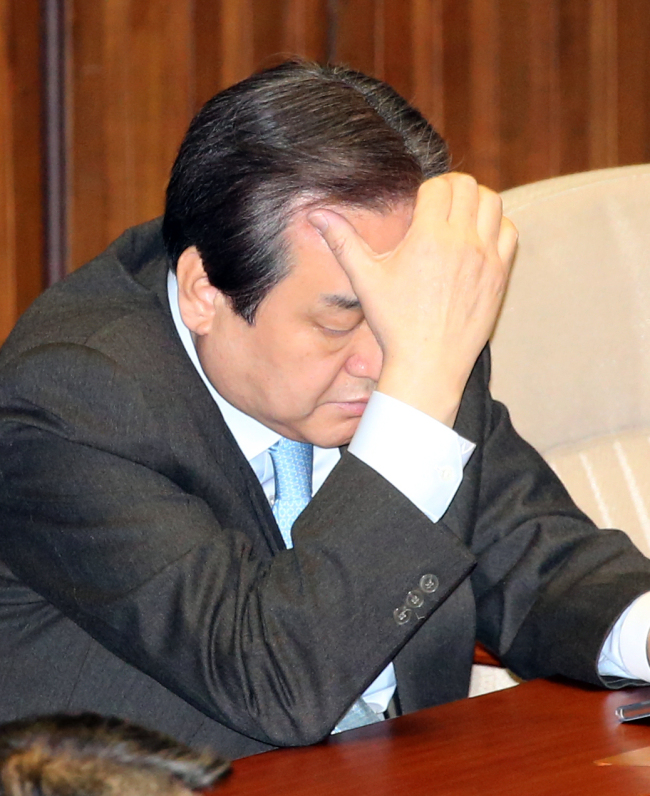The ruling conservative Saenuri Party’s internal feud over candidate nominations for the upcoming parliamentary elections escalated Thursday into a head-on collision between lawmakers loyal to President Park Geun-hye and the opposing faction.
The former group, led by nomination committee chairman Rep. Lee Hahn-koo, insisted on a public survey system that has been said to favor rookie politicians.
The “non-Park” members led by party leader Rep. Kim Moo-sung, saw this rule not only as an unfair swipe at incumbent lawmakers, but also as an attempt of the “pro-Park” faction to corner key constituencies.
“As a party leader, I have the duty to deter the nomination committee from deviating from basic regulations of the party,” said Rep. Kim at the Supreme Council meeting Thursday.
“I will not tolerate a nomination system that favors some and cuts off others.”
Rep. Suh Chung-won, speaking for the pro-president group, immediately rebuked Kim for making “inappropriate” comments in public.
“Such comments (of intolerance) are precisely what we should not tolerate,” he said.
While the meeting turned into a verbal duel, Rep. Kim Tae-ho blamed both sides for losing dignity in front of people and left the room.
The Saenuri bigwigs have been playing tug-of-war with the nomination process, most recently shaken up by the nomination committee chief Lee’s recent nomination system.
 |
| Saenuri chairman Rep. Kim Moo-sung attends a plenary session at the National Assembly on Thursday. (Yonhap) |
Lee had said Tuesday that the committee would designate one to three priority constituencies in each of the 17 metropolitan cities and provinces.
According to the plan, should multiple aspirants in the given district fail to reach an agreement, there would be a public survey, short of a vote by party members.
This open survey system is seen to favor rookie candidates, especially those with a high media profile, such as former Interior Minister Chong Jong-sup and former chief presidential press secretary Yoon Doo-hyun.
Incumbent lawmakers have been favoring a mixed system, combining 70 percent of the public survey with a 30 percent party members’ vote.
“(The party’s nomination rule) is not about a factional dispute, but a conflict between those who wish to implement reforms and those who prefer to defend vested interests,” Lee said at the committee meeting held after the Supreme Council.
As of Wednesday, a total of 822 party members had filed for the party’s nomination. Of them, 254, or 31 percent, were for the Daegu and Gyeongsang Provinces, southeastern regions that have long favored the conservative camp.
By Bae Hyun-jung (tellme@heraldcorp.com)

